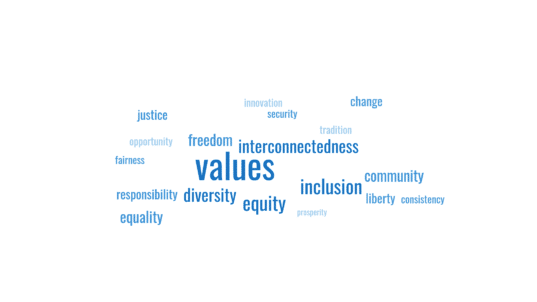One of the core aspects of IF is that the policy possibilities in our discussion reports are not developed by politicians and policy wonks, but by citizens for their fellow citizens. Our project facilitators are charged with seeing that our panelists focus upon conceptual possibilities (the ‘what-to-do’) instead of practical possibilities (the ‘how-to-do-it’), and with seeing that they do not slip into advocating a conceptual possibility instead of simply developing and describing it. But aside from that, the possibilities in our reports are developed entirely by citizens for use by their fellow citizens. In fact, our founder, Jay Stern, used to call them ‘citizen staff work reports’. His idea was simple, compelling, and worth remembering.
Ours is a government of the people, by the people, and for the people. This means that our citizens are all a part of it. But the issues that our government has to decide are so numerous and so complex that not even our elected representatives, who deal with them as their full time jobs, are able to keep up with them all. Our senators and congressmen must instead employ staffs of experts and policy wonks to do the work for them. These ‘staff members’ investigate the policy issues. They explore the concerns behind them, develop the possibilities for addressing them, and speculate about the consequences of going this way or that.
But if the policy issues that we must decide are so numerous and so complex that our full-time representatives cannot keep up with them, then how can ordinary citizens who typically work their own full-time jobs possibly keep up with them well enough to make informed decisions and policy choices?
Jay thought that IF could provide a service to our citizens in this regard. He thought that IF could provide facilitators, leisure time, and confidentiality to help small groups of citizens explore an area of concern and develop policy possibilities pertaining to it for their fellow citizens. Our sanctuary project panelists would, in this way, be similar to senate and congressional staff members. But instead of developing policy staff work reports for senators and congressmen, they would be developing them for their fellow citizens. Hence the idea of citizen staff work reports.
Here, it is important to bear in mind that senators and congressmen usually belong to political parties. So do their staff members. Indeed, their staff members usually belong to the same political party. This means that the conceptual possibilities in their staff work reports are often narrowly constrained by their political ideology (liberal or conservative), their party loyalty (democrat or republican), and the delicacies of their own personal job security–which, in practice, means that they cannot push too hard against the party machinery, their boss’s campaign promises, and the policy positions that got him elected. Indeed, their staff work reports more often than not consist of what IF calls alternative ‘practical possibilities’, i.e., different ways to implement some preordained conceptual possibility¾which, in their case, has often been uncritically accepted as something that must be done without any discussion at all.
This is part of the reason why Jay Stern established the Interactivity Foundation. IF does not hold any political office, and it is not running for one. We need not kowtow to the policy platform of any political party. We do not have a political ideology, and we have no policy position in any of the areas of concerns in which we conduct sanctuary projects. We are not constrained by political ideology or party loyalty. And our sanctuary project panelists are members of your staff. The areas of public policy concern and the conceptual possibilities that they explore are not constrained by political ideology or party loyalty. We encourage them, on the contrary, to think as broadly as they possibly can, and we protect the confidentiality of their sanctuary discussions and what they say in them to help them do so. Our ‘constituency’ consists of all of our citizens. They are a very diverse group of individuals–not just racially and ethnically and religiously and economically, but politically and philosophically and conceptually as well. They are not just democrats or just republicans. They are democrats, republicans, independents, liberals, conservatives, and the great in-between. We are producing what Jay used to call ‘preliminary staff work’ for all of them. And we should strive to have something for all of them in our citizen staff work reports.



